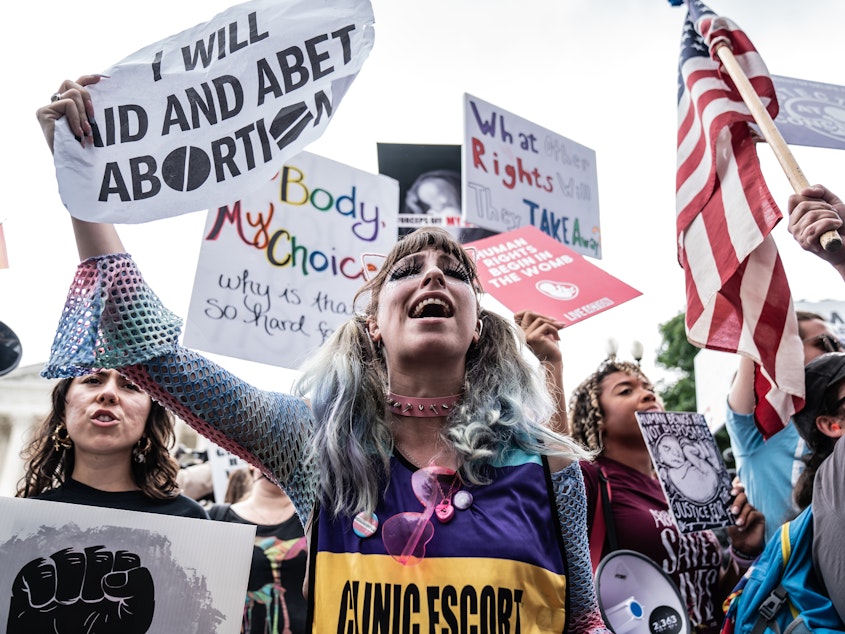Life after Roe: What the Supreme Court ruling means for Washington state

In the wake of a historic Supreme Court ruling that struck down federal protection of abortion rights, individual states are left to shape their own laws related to abortion access and care.
Here in Washington state, abortion remains legal and codified in state law. So, what will the overturning of Roe v. Wade mean for Washingtonians?
Who can get an abortion in Washington?
Abortion has been legal in Washington since a statewide ballot referendum passed in 1970. Another ballot measure, passed in 1991, affirmed a person's right to choose surgical abortions prior to what's called "fetal viability," the point at which a fetus can survive outside the uterus. This moment varies, but a fetus generally reaches viability 24 to 26 weeks into pregnancy, so around the fifth month someone is pregnant. An abortion can only be performed at or after viability if the patient's life or health is at risk.
In March, Gov. Jay Inslee expanded state abortion rules to include people who are transgender by adding gender-neutral language to state abortion laws. Undocumented immigrants are eligible for abortion services and there are no laws restricting access, such as parental consent, informed consent, or waiting periods. Washington Attorney General Bob Ferguson told KUOW Monday that he's committed to protecting abortion rights despite the Supreme Court decision.
Where are abortions available?
The Northwest Abortion Access Fund lists clinics in Washington state that provide abortion services. The majority of those clinics are located in Western Washington. According to the Guttmacher Institute, 59% of Washington counties had no clinics providing abortions as of 2017. Ten percent of state residents who could become pregnant live in those counties.
Sponsored
How to pay for abortions?
According to Planned Parenthood, abortions cost between $700 and $1,850, depending on how far along a person is in their pregnancy and whether they opt for medication abortion (abortion pills) or in-clinic abortions. State law requires all state-regulated insurance plans to cover abortions if they also cover maternity services.
Washington state provides abortion coverage for people who meet eligibility requirements through a number of programs, including Washington Apple Health, the state's name for Medicaid. Additional funding is available through state and federal resources. The state Department of Health has a wealth of information about abortion providers and abortion funding.
What if I need an abortion, but I don't want anyone to find out?
State-regulated health insurance plans send all communication about abortions to the email or physical address the person receiving the abortion specifies. Health plans are not allowed to disclose patient information, even to the policyholder, without the patient's consent.
Sponsored
Are health care professionals who provide abortion services in Washington in danger, especially if they provide abortions to out-of-state residents?
Recently enacted state law prohibits the state from criminalizing any pregnancy outcomes or penalizing people for assisting those who are pregnant and seeking abortions. During a press conference Saturday, Gov. Inslee said he would issue an order that Washington state troopers not assist law enforcement agencies from other states in their investigation of abortion providers and patients. Recent legislation also codified the authority of health clinicians, such as physician assistants and advanced nurse practitioners, to provide abortion care.
Will Washington state see an increase in abortions from out-of-state residents?
State officials in Washington are preparing for an influx of out-of-state patients in the wake of the Supreme Court ruling. Thirteen states, including Idaho, have so-called "trigger" laws activated by the high court's verdict that make abortions illegal in those states. Washington has teamed up with California and Oregon to launch a "multi-state commitment" to what state leaders call "reproductive freedom." That means the state officials in those West Coast states are vowing to remain a safe haven for people seeking abortions and to protect patients and doctors "against efforts by other states to export their abortion bans to our states," according to a press release from the governor's office.





